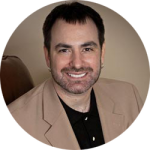
In and of itself, anger is neither good nor bad. It’s just an energy. Anger toward an employer or romantic partner can lend you the courage to leave an unhealthy situation. Anger regarding some social injustice may motivate you to write a check or lend a hand. When you point anger in a productive or creative direction, it can be a powerful force for positive change. But more often than not, anger just sits there, festering, stagnating. It congeals into resentment.
Resentment is like drinking a cup of poison and waiting for the other person to die. Resentment feeds on memory. It requires that you replay some old grievance, over and over, “freshening” your feelings of hurt by reliving painful details. If someone sends you an angry text, do you re-read it several times? Probably. If your partner does something hurtful, do you put your mental slideshow of the event on repeat? Sure you do. But why?
If you want to appear taller when taking a photo, you can stand by a shorter person. But looking tall isn’t the same thing as being tall. Resentment works like this. You remind yourself how selfish, lazy or childish some other person is–but you’re really trying to “prove” to yourself that you are selfless, motivated and mature. All resentment arises from insecurity. And it is toxic. When you dwell on past slights, your body produces “fight or flight” stress chemicals. A literal cup of poison.
If you’re struggling to let go anger toward someone, try this instead. Close your eyes and visualize massaging this person’s feet. And I mean really get in there between those toes, up around those ankles. In the same way drinking poisons hurts you rather than your enemy, mentally massaging this person’s feet benefits you–not the other person. This challenging visualization tells your body the other person isn’t to be feared. He or she can’t truly hold you back or knock your life off course. Your “enemy” isn’t a threat to your ultimate well-being–just someone with tired feet.
 About the Author: James Robbins is a licensed professional counselor, published author and co-owner of Dallas Whole Life Counseling. He has over 15 years of experience helping people in various life stages that come from a wide variety of cultural, economic and family backgrounds. Learn more about his background by clicking here.
About the Author: James Robbins is a licensed professional counselor, published author and co-owner of Dallas Whole Life Counseling. He has over 15 years of experience helping people in various life stages that come from a wide variety of cultural, economic and family backgrounds. Learn more about his background by clicking here.


Leave a Reply
You must be logged in to post a comment.